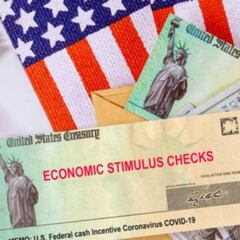What benefits can you get in Florida? Social security, unemployment, others...
Floridians who are jobless or experiencing economic hardship may be eligible to receive various state financial aid to tide them over for a period of time.

Falling on hard times can happen to anyone but there are programs in place to cushion the fall. In Florida residents have access to a number of programs whether they should find they are out of work through no fault of their own to financial assistance covering expenses, be that food, rent or utilities.
Here’s a look at some of the programs that are available in Florida.
Also see:
- Can the Child Tax Credit be extended until 2025?
- $2,000 monthly stimulus check petition nears its goal
- What states have the highest unemployment rate?
Unemployment compensation
Workers in Florida that are forced out of work due to no fault of their own can apply for Reemployment Assistance Benefits from the state. Enhanced federal pandemic unemployment benefits are no longer available, Governor Ron DeSantis chose to pull the state out of the $300 booster to weekly benefits early and the remaining programs expired in early September.
The state’s regular unemployment had been some of the stingiest in the nation giving out of work residents just 12 weeks of benefits. However, lawmakers overcame opposition from the governor and increased benefits to $375, a $100 bump, and added two weeks to the annual total the unemployed could claim when unemployment is at or below five percent. For every half percentage over five percent an additional week is granted to those receiving benefits.
Attention Claimants! Please be aware of and report fake social media accounts. The Department will NEVER ask you for sensitive information on social media platforms. pic.twitter.com/nCm4THYNUI
— Florida DEO (@FLDEO) October 21, 2021
Supplemental Security Income (SSI)
This federal program provides monthly payments to people who have limited income and few resources. Supplemental Security Income is available to people 65 or older, as well as people of any age who are blind or who have disabilities. You could be eligible for Supplemental Security Income even if you are not a US citizen but lawfully reside in the United States.
To apply for Supplemental Security Income benefits, visit your local Social Security office. You can call the Social Security Administration at 1-800-772-1213 to schedule an appointment with a representative who will guide you through the application process. People who are deaf or hard of hearing can call Social Security's toll-free TTY number, 1-800-325-0778. You can call between the hours of 7 am to 7 pm on business days.
Millions are managing their #SocialSecurity benefits online, so they can do what they want offline - what are you waiting for? See everything you can do with your personal my Social Security account: https://t.co/BwUudOhmKZ pic.twitter.com/EPVzG0aJfH
— Social Security (@SocialSecurity) October 22, 2021
Supplemental Nutrition Assistance Program (SNAP)
People with low-incomes that meet federal income eligibility rules can sign up to receive monthly electronic benefits that can be used to buy a range of foods at markets and food stores. To qualify for the Supplemental Nutrition Assistance Program (SNAP) in Florida residents must meet eligibility requirements based on family situation and income.
Beneficiaries can receive up to $250 for a single recipient to $1,504 for a family of eight, with an additional $188 per extra household member.
Those who receive Supplemental Security Income may be eligible for the SUNCAP Program, a special Food Assistance Program for beneficiaries that reside in Florida.
Temporary Cash Assistance (TCA)
Families with children under the age of 18, or under age 19 if full time secondary school students, could be eligible for Temporary Cash Assistance. Residents who are in the third trimester of pregnancy and unable to work as well as those in their ninth month of pregnancy may also meet the criteria to receive cash assistance. The program is designed to help families become self-supporting while allowing children to remain in their own homes.
In order to qualify a household must meet the TCA requirements based on income and assets as well as other technical criteria.
NOTICE OF RENTAL / UTILITIES ASSISTANCE: Thanks to the #AmericanRescuePlan, Florida just started a federally-funded emergency rental & utilities relief program to support residents & businesses. Apply here: https://t.co/xRK3Q2b1X2 pic.twitter.com/n8Uvd8k5AL
— Rep. Darren Soto (@RepDarrenSoto) May 11, 2021
Emergency Rental Assistance Program
Related stories
The Florida Department of Children and Families has a program to help residents pay for rent or utilities. OUR Florida emergency rental assistance is separate from other city and county programs across the state. Although it is available to all qualified applicants, residents cannot claim benefits from both the state and another program.
The state has created a frequently asked questions page for applicants to address concerns about the program.


